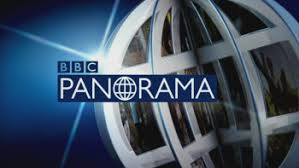BBC investigation accuses airlines of ‘putting profit before planet’

A BBC Panorama programme, due to be aired tonight, is promising to reveal the extent of ‘fuel tankering’ among airlines.
The practice sees aircraft ‘filled with extra fuel, usually to avoid paying higher prices for refuelling at their destination airports’, the BBC explained.
Panorama said it spoke to a BA whistleblower to gauge the extent of the practice, which it adds is not exclusive to BA.
Researchers estimated one in five of all European flights involve some element of fuel tinkering, the BBC said.
BA has told the programme is common to carry extra fuel for ‘operational, safety and price reasons’.
Panorama discovered the airline generated an extra 18,000 tonnes of carbon dioxide last year through fuel tankering.
Cost savings made on a single flight can be as small as just over £10, though savings can run to hundreds of pounds.
The practice on European routes could result in additional annual greenhouse gas emissions equivalent to that produced by a town of 100,000 people.
Greenpeace UK executive director John Sauven told the BBC the practice was ‘a classic example of a company putting profit before planet’.
Panorama said it has seen ‘dozens of internal BA documents that show up to six tonnes of extra fuel have been loaded onto planes in this way’.
The programme said it has also seen evidence that easyJet carries extra fuel in this way.
A BA spokesperson said: "It’s common practice across the airline industry to carry additional fuel on some flights due to operational, safety and price reasons.
"For British Airways this applies to mainly short-haul destinations where there are considerable fuel price differences between European airports.
"Based on research published by Eurocontrol’s Aviation Intelligence Unit, the additional CO2 emissions from British Airways represents approximately 2% of the total extra emissions generated by all airlines tankering fuel in Europe.
"The practice contributes less than 0.1% of the airline’s total carbon emissions.’‹ ‘‹Since 2012 flights within Europe are covered by the EU emissions trading system (EU ETS) and from 2020 British Airways will offset all CO2 emissions from its UK domestic flights."
EasyJet said: "EasyJet constantly looks at all of our operations to ensure we are operating in the most efficient and sustainable way – this has been shown through numerous initiatives like our single engine taxiing, our efforts to remove weight from the aircraft including lightweight seats, and replacing printed manuals with electronic devices and introducing electric aircraft tugs at Gatwick.
"We have already reduced the level of tankering in recent years with the practice only taking place on a tiny proportion of our flights for both operational and commercial reasons.
"There will always be a requirement for operational reasons as these can be due to operating into jet fuel supply constrained airports or those experiencing short term jet fuel supply difficulties but we will of course continue to review all practices on the basis of operating efficiency and sustainably."
The programme, Panorama: Can Flying Go Green? will be shown on BBC1 tonight, Monday, November 11, at 8.30pm.
Lisa
Lisa joined Travel Weekly nearly 25 years ago as technology reporter and then sailed around the world for a couple of years as cruise correspondent, before becoming deputy editor. Now freelance, Lisa writes for various print and web publications, edits Corporate Traveller’s client magazine, Gateway, and works on the acclaimed Remembering Wildlife series of photography books, which raise awareness of nature’s most at-risk species and helps to fund their protection.
 United Kingdom
United Kingdom United States
United States Asia Pacific
Asia Pacific












































Dozens fall ill in P&O Cruises ship outbreak
Turkish Airlines flight in emergency landing after pilot dies
BA suspending all Heathrow to Abu Dhabi flights
Unexpected wave rocks cruise ship
Woman dies after going overboard in English Channel